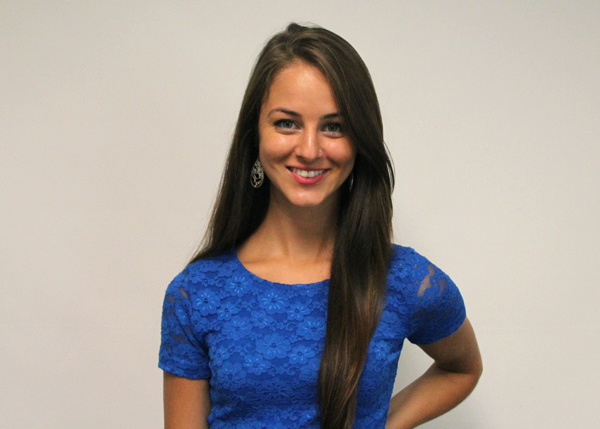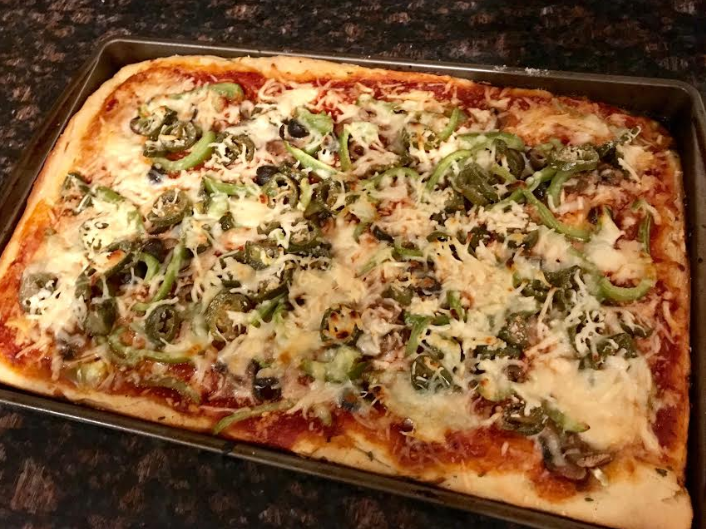Yesterday, Niles West alumna Dylan Lanoff made a YouTube video about double standards in sexual assault. She raised the question of why we, as women, think we’re the only ones who suffer from sexual assault. She goes on to talk about how the media fails to cover sensitive topics regarding men. Whether it’s sexual assault or eating disorders, there is a double standard.
Dylan opened my eyes to one of many existing double standards, and it made me realize just how blind some people are to such sensitive topics. Dylan made a valid point that reminded me of another double standard that too often goes unnoticed: weight.
Along with Dylan’s YouTube video last night, there was one other program that was being tuned into in households across America: The Victoria’s Secret Fashion Show.
What was supposed to be a show of beautiful, confident women showing off Victoria’s Secret’s new line turned into nothing but negativity on Twitter.
Scrolling through my news feed, I saw everything from praising the Angels, to girls wishing they could lose weight, to girls bashing the Angels for being so skinny.
Tweets went as far as saying “Why is the VS Fashion show such a big deal? It’s a bunch of toothpicks walking around in nothing while everyone claps for them.” Or even “Skinny is out, thick is in.”
Now, I don’t know about all of you, but I had no idea that someone’s body type could be “out.” Wow! I better get with the trends, shouldn’t I?
The truth of the matter is that society is always going to tell you how to look or how not to look. In the early 2000s, we saw tabloids with Nichole Richie, Britney Spears, and Christina Aguilera across the front page weighing what seemed to be no more than 100 pounds. That was back when skinny was “in,” and everyone was killing themselves to maintain a certain weight. These days, we see the Kardashians and Jennifer Lawrence showing off their curves, and it’s great. It really is. But what’s not so great is how these days, women who don’t have C cups, wide hips, and a nice, perky butt are ridiculed. These days, if you’re skinny, you’re considered “anorexic” or “unhealthy.” These days, making fun of people for being skinny is accepted and even praised.
Now, let me paint you a picture. There’s a girl in the cafeteria. She goes to her lunch table to sit with her friends. As she sets her tray down, the guys snicker. “Do you really need to be eating all that?” they ask. The girl looks down, ashamed, while her girl friends jump to her rescue. “How could you say that to her?” “Do you have any idea how much teenage girls struggle with body image?” “You’re so rude, leave her alone.”
Across the cafeteria, another girl is going to her table to sit with her friends. “You should probably get some more food, you really need to put some meat on your bones!” One of the guys says. This time, instead of one of her girl friends defending her, they all agree. “Yeah, you’re so skinny!” “What do you even eat?” “You’re like a toothpick!”
In both instances, someone’s body image is being critiqued. My question is this: why do we consider it rude and insensitive to tell an overweight person to lose weight, but we don’t hesitate to tell a skinny person to gain weight?
Senior Taleen Poladian feels a lot of people have only “one perspective on skinny people, and they think it is that skinny people want to be skinny to be beautiful or something, but that’s not the case for a lot of people. Being skinny is one of my biggest insecurities, so when people tell me to get some meat on me it kind of hurts me because trust me, I’ve tried.”
Senior Sara Kelly is able to sympathize with Poladian.
“Being skinny girl myself, it’s not always the easiest thing to gain weight,” Kelly said.
The feelings that Poladian and Kelly have toward the topic are not uncommon. My family used to call me “string bean” until I finally expressed to them how hurtful it was.
Yes, you can all call me annoying and tell me to shut up because I have “nothing to complain about” because people would “kill to be skinny,” but that’s exactly where the double standard comes into play.
Just as there are women who look in the mirror every day and wish that they didn’t have “thunder thighs” or “beer bellies,” there are also women who look in the mirror every day and resent their “chicken legs” and lack of hips.
My point is that everyone is made differently, and just because it’s “in” to be “thick,” doesn’t mean that girls who are unable to gain weight should be brought down and be forced to look at themselves in a negative light.
“People are all different shapes and sizes. When people tell other people they should eat more [or] less, it’s an extension of that person telling the other one how to live their lives, and that’s never okay,” senior Lila Gilbert said. “Some skinny people are just as insecure about their weight as some not so skinny people, and criticizing their bodies isn’t helping anyone in the situation.”
If you wouldn’t walk up to an overweight person and say, “wow, you really need to shed a few pounds,” then you shouldn’t walk up to a skinny person and tell them to “put some meat on their bones.” People of all shapes and sizes struggle with body image issues; not just those who are overweight.
“There are definitely stereotypes on people who are overweight, and on people who are skinny,” school psychologist Felix Caceres said. “We’re trying to get rid of any type of stereotype, because any type of stereotype can be wrong. Body image issues [come from] girls who are overweight and underweight.”
Although most of the instances specified in this article are female related, there’s another aspect that I would like you all to consider: men. After seeing countless Calvin Klein and Tommy Hilfiger ads, it seems as though women are expecting men to be over six feet tall with tones abs, huge biceps, and back muscles. I realized that we never stop to think how this may make men feel.
Senior Jordan Moy says that the body images that the media puts on men is “the same thing [as women], it just doesn’t get as much attention.”
“The media portrays men as rock stars with chiseled abs and all that, and portrays women as Victoria’s Secret models. [The media] plays a huge role in peoples’ opinions on how people should look,” junior Mario Ljubic said.
The most important point, Niles West, is to think before you speak, and be sensitive to all body types. You never know the struggles someone is going through, and no one has a right to criticize anyone based on their body.
Just as there’s nothing wrong with being a size 10, there’s also nothing wrong with being a size 0. Abs or no abs, thunder thighs or chicken legs, no one should be judged based on their physique. Healthy is healthy, no matter what size it comes in, and beautiful is beautiful, no matter what shape it comes in.










Mariel Vega • Dec 16, 2013 at 12:38 PM
Wow, this story is really good. True insight on society’s view on body types and sizes nowadays.
Hana • Dec 14, 2013 at 7:09 AM
Great points! Love the article!
Average Girl • Dec 13, 2013 at 3:40 PM
Thank you for writing this article. It was kind of a wake up call for me. I think people just need to learn to be happy with what they look like no matter what. Everyone is beautiful in their own way. Some people may not have this opinion about themselves or other people, but it’s just good to be happy with who you are.
Melanie • Dec 13, 2013 at 10:28 AM
Love the article alyssa!!
Charlie J • Dec 12, 2013 at 1:57 PM
Nice article! It’s good to see this type of article more and more. I think that not all the blame can be out on women and men for wanting to look skinnier or thicker since the media puts an incredible amount of pressure on everyone. “Be skinny, you’re too big!” And then when you’re skinny people ask you, “why are you so skinny?” It’s hypocritical. Just ask yourself, what’s right for me?
paul • Dec 11, 2013 at 7:42 PM
Although I can not stand the crap you write about, I can not deny the fact that you are a fantastic writer. You may actually have a career in this. Good Luck, Keep writing, and try to find some more meaningful topics.
Brain • Dec 11, 2013 at 1:20 PM
Being fat is not okay, its health threatening.
You know who • Dec 12, 2013 at 8:58 AM
* it’s
Amanda • Dec 12, 2013 at 9:27 PM
Being fat is not necessarily “health threatening”. I mean really what is fat?! I can look in the mirror right now, and call myself fat. Whereas a doctor, or dietitian/ nutritionist may say I am an average weight for my age, and I should not worry about it. Saying “fat” is not okay, is just like saying “skinny” is not okay. Neither words have a real definition, both our opinions can be different from one another.
Mary Evans • Dec 11, 2013 at 12:04 PM
Good job Alyssa that is so true.